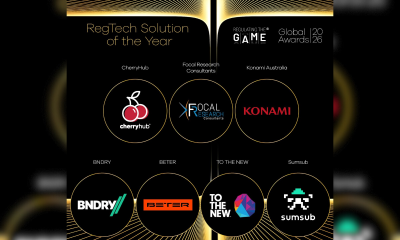Interviews
Spain Spotlight: Relax’s upcoming Spanish debut
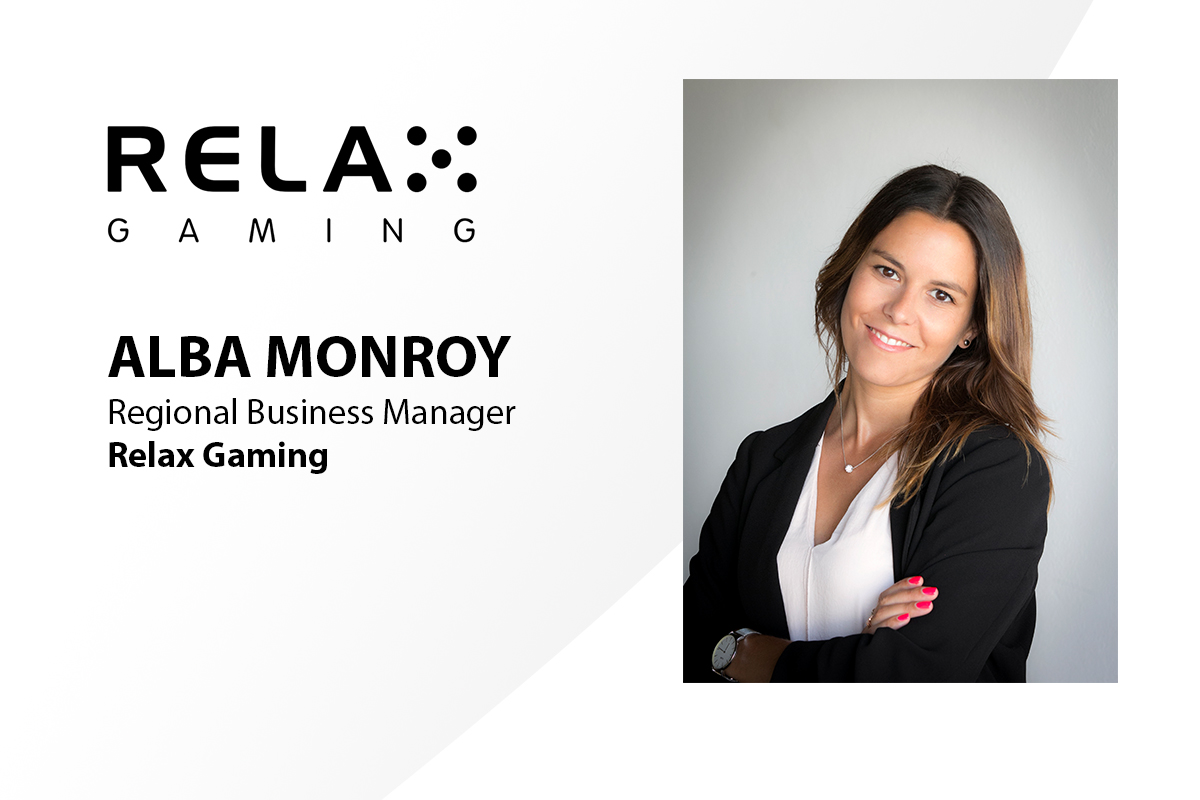
In the second of our two-part series on Spain, Alba Monroy, Regional Business Manager at Relax Gaming, talks through the award-winning provider’s plans for its Spanish debut – as well as the post-pandemic growth opportunities available to suppliers and operators.
Looking at Spain’s performance over 2021 and into the beginning of this year – how much has the market recovered post-pandemic and what are we seeing in terms of trends for verticals?
While 2021 proved to be a difficult year for almost every vertical within the gaming sector in Spain, there are signs for recovery, with online casino enjoying better fortunes than most. I believe this is down to the growing popularity of slots and live casino games, mostly driven by the shift of players moving from land-based to online.
What’s genuinely exciting about this part of the casino space is that there is still a lot of room for growth, especially given that there are some talented slot studios operating within the Spanish market, and I fully expect a number of new and established studios to begin operating in the region in the not-so-distant future.
With regards to live casino products, I feel that there’s still a notable gap in the market here and there aren’t too many suppliers that cater specifically to the Spanish market. This lack of offering means that there’s prime opportunity for someone to come in and take the initiative – as it’s certainly ripe for disruption.
When it comes to online do you see potential for this year to return to business as usual? Are there any strong growth areas our readers should be keeping an eye on?
There’s no doubt the environment for operators in Spain is a challenging one, things became even more difficult in 2020 when the Royal Decree on the Commercial Communications of Gambling Activities was introduced, significantly restricting all gambling advertising.
That being said, I still think that there’s significant space for the iGaming market to grow within Spain. New products and features within games are beginning to create notable trends within a certain demographic of players. The new demographics of players are also starting to appreciate and enjoy innovative content that provides them with that same videogaming they’re experience accustomed to.
Looking back, when iGaming was first regulated within the country more than a decade ago it was simple three-reel slots and table games that reigned supreme, mainly because that was all that was on offer. Nowadays that’s all different – casino players are inundated with exciting content that offers them added value such as table games with side bets and online slots with engaging bonus features and lucrative jackpots.
What’s the current climate for retail and how much do you see land-based players acquired by online to continue there? Is it a case of players returning to their preferred channel once most restrictions are lifted in the coming months?
The pandemic helped the gaming industry in Spain move from something that was primarily land-based towards more of an online landscape, very much resembling something we already see in established regulated markets across Europe.
There will always be players out there that prefer the experience of physically going into a casino and playing games surrounded by other people with real dealers, however, I think a lot of these players have now begun to realise the opportunities that the online casino brings.
The vast offering online casino can bring far outweighs its land-based counterpart, there are so many different games players can access in an instant through a computer or their mobile device. It’s evident that land-based casinos have no way of competing in this sense, you just can’t get the same vast range of products there as you can online.
In addition to this, with current restrictions we can’t predict when or if players will return to casinos en masse, and in many ways, there’s not really any reason for them to do so if they feel comfortable playing games at home or on-the-go when playing from their phone.
How do you see the enhanced marketing restrictions currently coming into force in Spain? Will it affect the jurisdiction’s development, and do you see it as a challenge for operators to differentiate themselves?
Marketing spend within Spain started to decline dramatically back when the pandemic first began, this can be pinpointed to when operators were banned from promoting their brands. Of course, the Royal Decree that followed then only made things even more difficult for operators and suppliers.
Frustratingly, things still aren’t getting any better for them. Advertising restrictions are getting tougher and tougher, pushing operators to focus on other areas such as their product selection and variety of games
That’s why at Relax Gaming we are trying to have the best slots content, as well as the best partners for Spain, so we can at least help them offer some differentiation.
Given Spain’s passion for sports betting, how much potential do you see for introducing sports fans to casino verticals? What’s key for attracting interest?
Cross selling is key regardless of the market, it’s certainly one of the best ways to drive growth. Even though instant sports games aren’t that popular in Spain, I do believe that this a good direction for operators to go. We’re currently entering the Spanish market with one of our partners that offers instant sports games. I believe they offer a great opportunity and with the right strategy can help introduce players to other verticals – it will be very interesting to see how they perform.
Last but not least, talk us through the Spanish online environment when it comes to online tech – do the likes of platform provision vary at all when compared to neighbouring markets such as Italy and the UK?
iGaming, just like the rest of the world, has experienced large-scale disruption due to the pandemic. These disruptions have brought in some significant changes in terms of both employment, delivery execution and restrictions to growth potential.
It’s encouraging to see that we’re starting to get back to some degree of normality now as restrictions soften, both of us as individuals and as professionals within the iGaming industry. We’re under no illusions that it might take a while, but we’re slowly returning to business as usual.
There are huge growth areas within iGaming in Spain, and now trends are starting to set in amongst players, however this is mostly rooted in existing factors that have been on the table for the last year or two, so we’re still waiting for greater innovation, as we’ve already mentioned, it is in many ways ripe for disruption!
Powered by WPeMatico
Interviews
Scaling innovation through the launch of Tequity Publishing
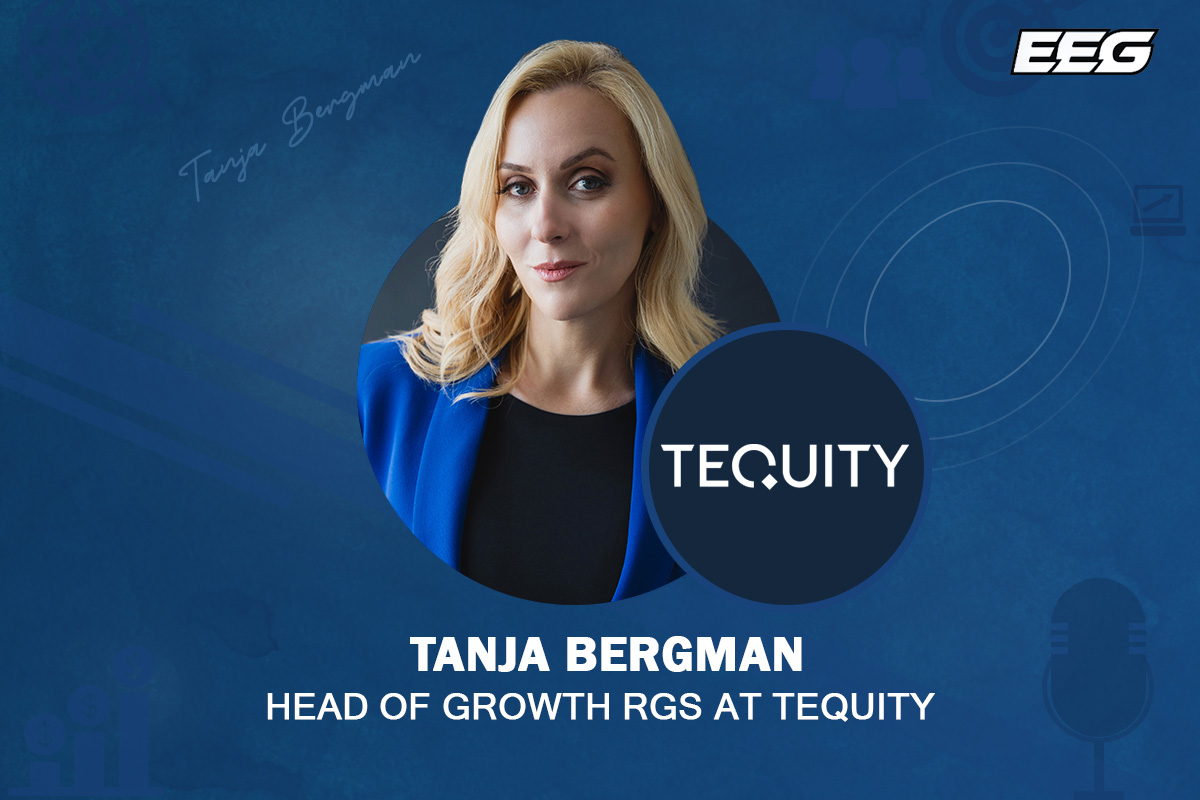
Following the announcement of its new publishing vertical and the successful debut of Royal Drop, we sat down with Tanja Bergman, Head of Growth RGS at Tequity, to discuss how this new arm is set to dismantle technical barriers for ambitious studios and why scalability is the new frontier for the ‘Burst Games’ genre.
Tequity has just officially launched its Publishing vertical. What was the primary catalyst behind this move?
The industry is currently in a fascinating place. There is no shortage of creative talent among studios, but there is a massive technical bottleneck. We have seen so many ambitious studios with incredible concepts – especially those moving beyond traditional slots – who have been getting bogged down in terms of getting those concepts out into the marketplace.
The catalyst for Tequity Publishing was simple. We wanted to break down those technical barriers. By handling the infrastructure, distribution, and compliance frameworks, we allow studios to do what they do best, which is build outstanding games. It’s about speed-to-market without compromising on the quality or the vision of their content.
The launch coincides with the release of Royal Drop. How does this game, and the partnership with Mirror Image Gaming and The Fortune Engine, showcase what Tequity Publishing is all about?
Royal Drop is the perfect proof of concept. It’s a collaboration that highlights three important pillars of modern game delivery. You have Mirror Image Gaming bringing that fresh, video-game-influenced Burst Games energy, The Fortune Engine provide the math tools and templates, and Tequity Publishing offers the global scale and distribution pathway.

It shows that when you remove operational friction, you can create a game-first experience that appeals to a new generation of players who want something more interactive than a standard 5×3 reel.
Tequity Publishing offers two models: RGSaaS and RGS-to-RGS. Can you walk us through the strategic benefits of each?
Flexibility is key, because no two studios are at the same stage of their journey. The RGSaaS model is our full-service offering. It’s designed for studios that want to focus 100% on the creative side. We provide the entire infrastructure and publishing framework and it is essentially a business-in-a-box for game creators.
The RGS-to-RGS model is a more streamlined, tech-first approach for studios that already have their own RGS but lack the distribution muscle. It allows them to plug into our growing operator and aggregator network instantly. Both models are built on the same philosophy: helping studios reach parts of the market they otherwise couldn’t access on their own.
You mentioned reaching new generations of players. How does this vertical specifically empower studios to innovate in ways they couldn’t before?
When a studio is concerned about how they are going to integrate with a multitude of different operators or how to navigate complex jurisdictional requirements, they tend to play it safe. They stick to what they know.
By taking that weight off their shoulders, we give them the opportunity to be brave. Studios like Mirror Image Gaming are pushing the boundaries of modern iGaming, taking influences from the video game world. This is exactly what the new generation of players is looking for. We provide the scalability so that these niche, innovative ideas can achieve mass-market impact.
It’s been a busy period for Tequity, following the success of your Originals series and the iBankroll partnership. How does the Publishing vertical fit into the broader Tequity roadmap for 2026?
It’s all part of becoming the ultimate technology partner for the gaming industry. Whether it’s our streamer-friendly Originals or our Bankroll-as-a-Service offering, the goal is to provide scalable, customisable solutions. Tequity Publishing is the natural evolution of that mission. We aren’t only providing the tools anymore, but also the pathway to the player. Looking ahead, you can expect a series of further launches through our three-way collaborations. We’re proving that the barrier to entry for innovation has never been lower.
Finally, for studios looking to scale quickly, what is your main message to them?
Don’t let technical noise drown out your creative signal. If you have a game concept that breaks the mould, you shouldn’t have to spend years building the distribution architecture to get it seen. That’s what we’re here for. We want to help you launch at a speed and scale that matches your ambition, so that you can make a significant splash in the industry.
The post Scaling innovation through the launch of Tequity Publishing appeared first on Eastern European Gaming | Global iGaming & Tech Intelligence Hub.
BetMGM
Breaking America with BetMGM
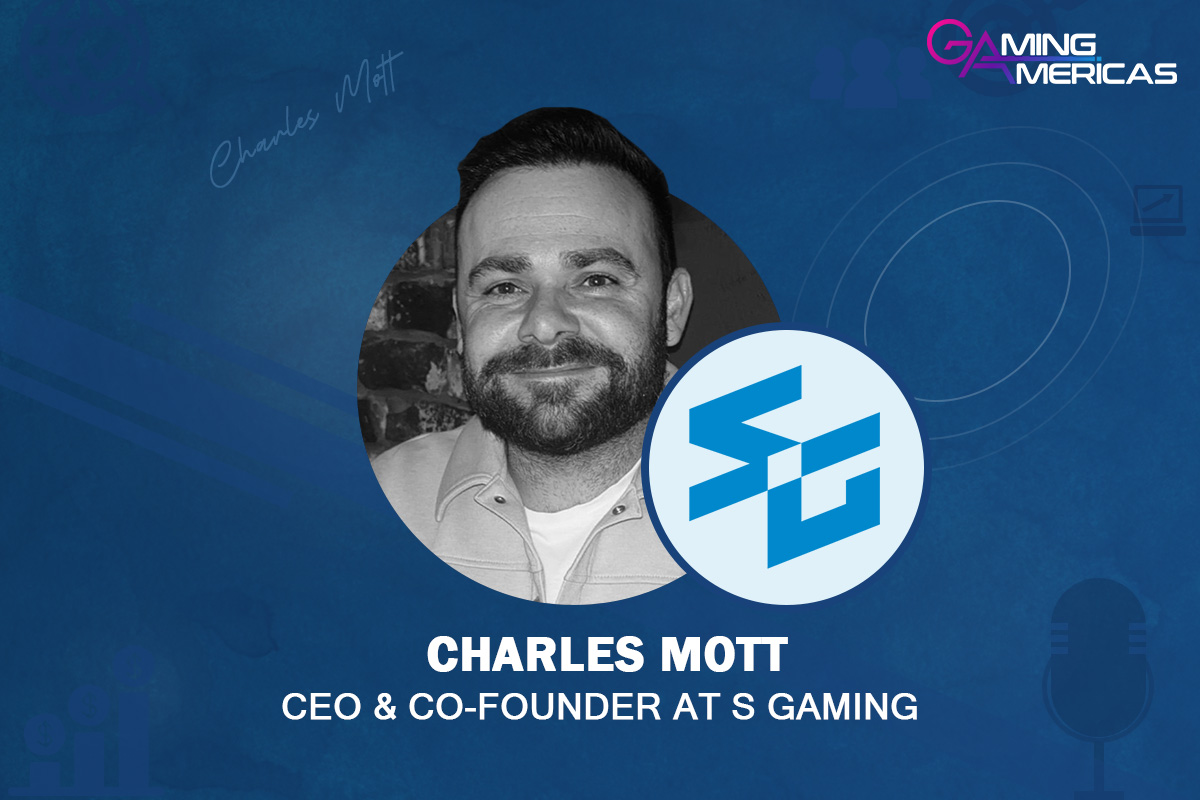
We speak to Charles Mott, CEO & Co-Founder at S Gaming, about the provider’s move into the US market with BetMGM and why more casual gameplay hits the mark with players stateside
Congratulations on your deal with BetMGM in the USA. Why is this such a milestone market launch for S Gaming?
The deal with BetMGM marks our hotly-anticipated launch in the US market, and sees our games go live to players in core regulated states such as New Jersey, Pennsylvania, West Virginia and Michigan. We see huge potential for our content in the North American market, and to make our debut with such a high-calibre operator is a testament to this. The US is still just finding its feet as a regulated online casino market, and our games, with their focus on sustainability and high entertainment, are the perfect fit for audiences who are used to land-based slots and are increasingly moving online. They are simple, easy to understand and play, and ultimately deliver tons of fun over longer playing sessions – just like the slot machines found on the floors of casinos in Las Vegas and beyond.
Just how important was it to go live with a tier-one operator like BetMGM? And how will the deal allow you to quickly build momentum in the US?
It’s mission critical. Going live with BetMGM allows us to build immediate trust with players, tap into a large and loyal playerbase, and simultaneously enter multiple regulated iCasino states at the same time. Now that we are up and running with BetMGM, we are turning our attention to striking partnerships with other operators active in the market. It’s pretty much the same blueprint that we’ve followed in our home market of the UK where we are now live with all but a handful of brands – something we have been able to achieve in a little over two years. We know the US is a slightly different market, but we are confident in our approach to game development and, as we gather more data on how US players interact with our games, will use this feedback loop to guide our product roadmap going forwards so that each title is better than the last and more suited to the preferences of US players.
You mentioned that your games are aimed at more casual players. How does this align with the preferences of US consumers?
If you walk onto the gaming floor of any Las Vegas casino, you’ll see row after row of slot machines. Increasingly, these machines are designed to keep players entertained for longer through gripping gameplay and regular wins. A lot of online slot content delivers high risk/high reward gameplay, where players can quickly clear through their balance as they hunt down big wins – wins that don’t land all that often. In a market where operators care deeply about retention and lifetime value, games that keep players spinning for longer really matter. Our approach to producing sustainable, fun games for players in the UK and Europe has allowed us to not only stand out but to engage players at scale, and we are confident players in the US, especially those who enjoy land-based slotting, will also be drawn to them at scale.
Has launching in the US been a major undertaking for S Gaming, or did it prove to be plain sailing for the most part?
When planning our move into the US market we identified two routes. We have our own remote game server, so we could build on that, secure licences in each state we wanted to enter, and then deploy our content directly with operators. The other option would be to work with a third-party RGS provider that already has the licences and integrations we needed. While the first option might sound like the best, in reality, especially for a smaller studio, the cost of and resources required for securing individual state licences can be prohibitive. So instead, we joined forces with Gaming Realms as they have the cutting-edge RGS and licences (in both the US and Europe) we were looking for. This means we simply need to build a US version of each game on the Gaming Realms RGS and can then deploy content with the wide range of operator partners they are connected with in regulated iCasino states across the US.
Tell us more about the initial run of games you’ve launched with BetMGM.
We’ve launched the partnership with Barnyard Bash Chicken Chase which will be followed by Triple 7 Jackpot in February and Cat and Mouse Collect in March – with one new game a month to follow as we build out our US portfolio. If players were to try just one of our games, it would be Barnyard Bash Chicken Chase. It gets players clucking as they spin the reels, collect Eggs and add them to the growing Nest – the more eggs collected, the bigger the Nest Egg becomes. Not only that, Eggs can randomly activate the matching colour-coded Nest Egg and award entry to the Chicken Trail feature, drop Egg-stra Free Spins or lay an Instant Prize.
But once they’ve tried it, they’ll definitely want to take Triple 7 Jackpot for a spin. This classic slot is dripping in neon action – the Triple 7 feature is always on screen but is locked until a spin lands three Bonus 777 symbols. This unlocks the feature with on spin awarded, giving players a shot at the 500x Jackpot prize. Free Spins are also up for grabs with seven Free Games awarded when three Scatters land in the base game.
Finally, Cat and Mouse Collect is a playful, feature-rich slot built around a simple but engaging Collect mechanic. Players pin the reels, collect up the cheeses and feed the hungry mice until they’re fit to burst. Green plates will serve up an instant prize, Blue will start the wild and wacky Cheese Chase and Red dishes out some feisty Free Spins. With regular feature triggers and plenty of on-reel interaction, it’s designed to keep players engaged from spin to spin without relying on extreme volatility.
What does success in the US look like for S Gaming over the next 12-18 months?
Success for us isn’t about one big hit, it’s about becoming a trusted, widely-distributed supplier in regulated iCasino states. Over the next year we want to significantly expand beyond BetMGM, roll out a steady pipeline of US-optimised titles and build the kind of player data and
operator relationships that let us grow sustainably. If players in New Jersey, Pennsylvania and Michigan are regularly choosing S Gaming titles as part of their core rotation, then we’ll know we’re really breaking into the market.
The post Breaking America with BetMGM appeared first on Americas iGaming & Sports Betting News.
3 Fortune Trees.
Kendoo interview: Can stability be the new innovation?
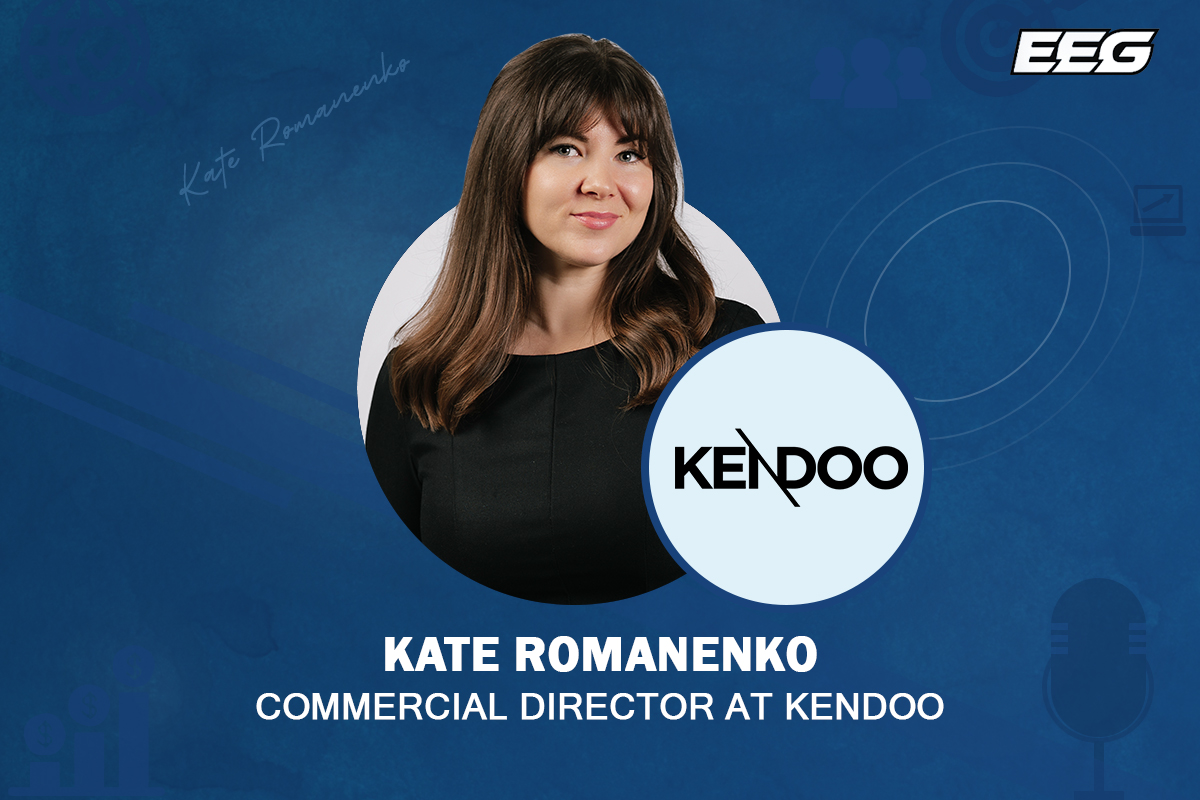
What innovation consists of within the slots industry is often debated. While there are often calls for more groundbreaking features to be introduced, the reality is that the progression of trusted and popular concepts is what drives the industry forward with new releases.
We caught up with the Kendoo’s Commercial Director, Kate Romanenko, to understand more on how long-term retention is often underpinned by controlled evolution of proven concepts, as shown in the company’s success over the past year.
In an industry driven by novelty, why do you think long-term consistency is becoming just as valuable as innovation?
In the competitive iGaming market, everyone is obsessed with “what’s next,” long-term consistency has become a signal of trust. Operators are increasingly cautious: they want games that perform predictably over time, not just those who grow only on launch. Controlled evolution, like we showed with 3 Pots and 4 Pots games, such as 3 Fortune Trees, 3 Gates of Pyramid, 4 Egypt Scarabs etc., proves that you can refresh mechanics and visuals without breaking what already works. Innovation still matters, but when it’s backed by performance data and retention, it becomes scalable, sustainable value rather than short-lived hype.
How does Kendoo ensure technical and gameplay stability across its growing portfolio, especially as it scales into new markets?
At Kendoo, we build on a select set of well-tested core mechanics, evolving them thoughtfully rather than introducing unproven systems. Each game reflects our research, experience, and deep understanding of player needs. This approach lets us expand into new markets without compromising reliability, delivering operators consistent performance and players a smooth, familiar experience they can trust.
What role does reliability play in building strong partnerships with aggregators and platforms?
Reliability is the foundation of trust with aggregators and platforms. When integrations are stable, launches are predictable, and games perform consistently, partners can scale with confidence. For Kendoo, reliability reduces operational friction on their side, fewer incidents, faster rollouts, and clearer performance expectations. Over time, this turns a supplier relationship into a long-term partnership, where growth is planned together rather than driven by constant risk around new releases.
Do you think players are beginning to value dependable, well-balanced games over constant experimentation?
Players enjoy novelty, but they return to games that feel fair, familiar, and well-balanced. Constant experimentation can create friction, while dependable mechanics build confidence and habit. That’s why evolved formats with proven performance tend to retain better: players know what to expect, and that reliability turns curiosity into long-term engagement. For example, taking mechanics like Pots, which originated in land-based casinos, and successfully adapting them for online play.
Can you point to a Kendoo title that’s become a steady performer over time and what that tells you about what players really value?
A clear example is 3 Fortune Trees. Since launch, it has consistently driven strong retention and engagement across markets, with an average of 500 bets per player, which is excellent. The game demonstrates that players value Pots mechanics and reliable, well-balanced gameplay over flashy, one-off features. Its engaging mechanics, popular theme, and premium art and animation all come together to create a game that players love to play.
The post Kendoo interview: Can stability be the new innovation? appeared first on Eastern European Gaming | Global iGaming & Tech Intelligence Hub.
-

 Book of Sobek6 days ago
Book of Sobek6 days agoHölle Games Releases Book of Sobek
-

 Africa6 days ago
Africa6 days agoDive Into a Different Kind of Love This February with Springbok Casino’s ‘Whalentines Month’ and Claim 25 Free Spins
-

 Danske Spil6 days ago
Danske Spil6 days agoS Gaming lands in Denmark with Danske Spil
-

 ACMA6 days ago
ACMA6 days agoACMA: Six Wagering Providers Breach Gambling Self-Exclusion Rules
-

 Australia6 days ago
Australia6 days agoFinalists Announced for Inaugural Regulating the Game Global Awards Following Strong Global Engagement
-

 Latest News6 days ago
Latest News6 days agoThunderkick Unveils Pan’s Arcadia, a Utopian Wilderness
-

 Latest News4 days ago
Latest News4 days agoBMM TESTLABS GRANTED NEW LICENSE IN BRAZILIAN STATE OF MINAS GERAIS, EXPANDING ITS PRODUCT TESTING AND CERTIFICATION FOOTPRINT IN BRAZIL
-

 Colombia5 days ago
Colombia5 days agoZITRO INSTALLS OVER 70 MACHINES ACROSS GRUPO ALADDIN CASINOS IN COLOMBIA












